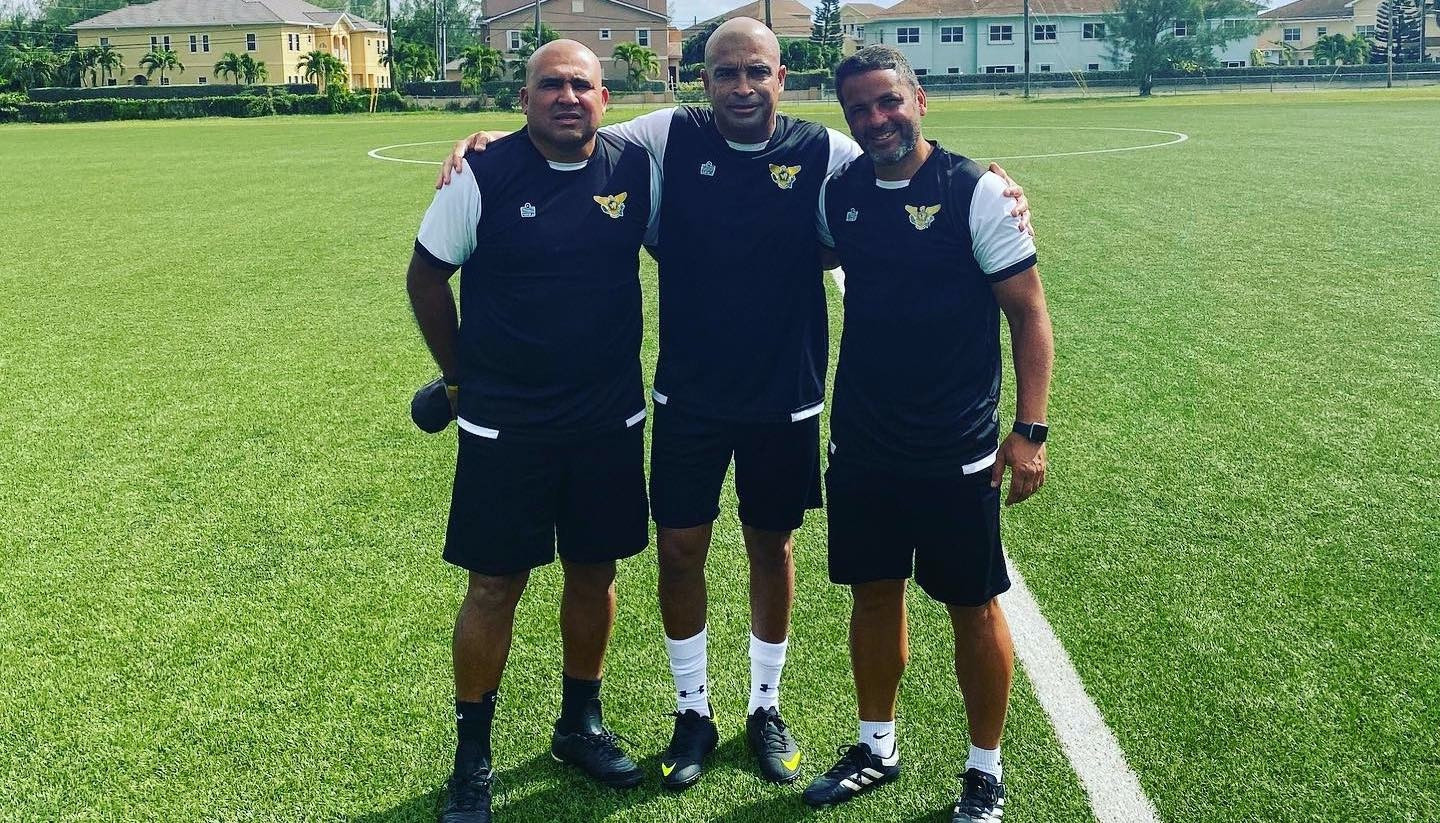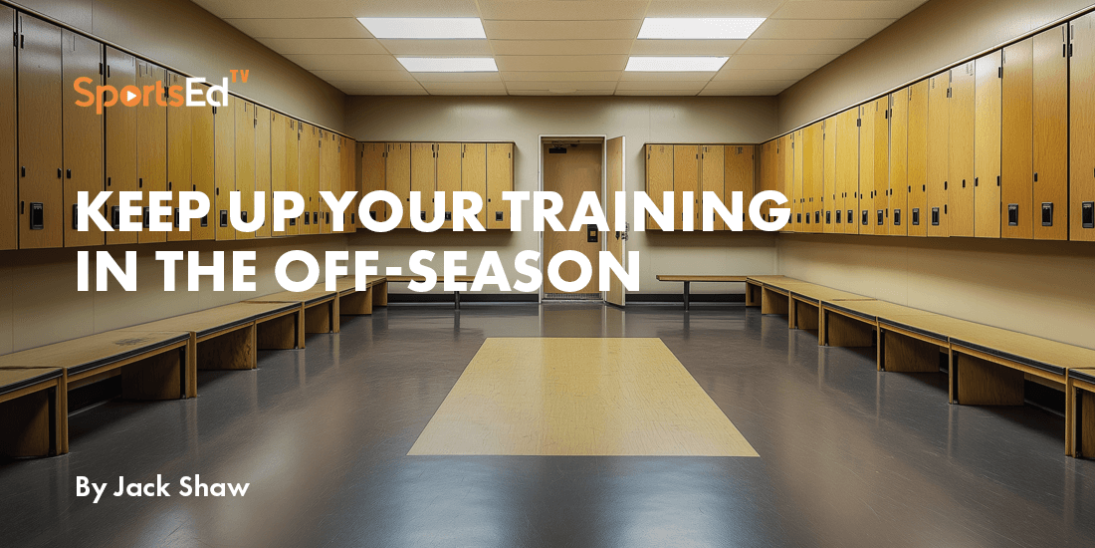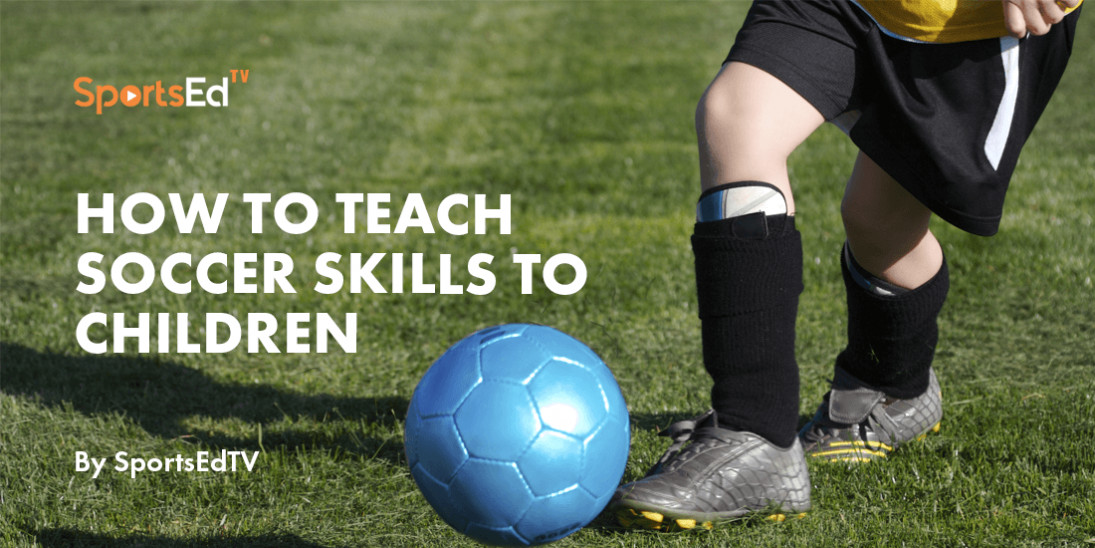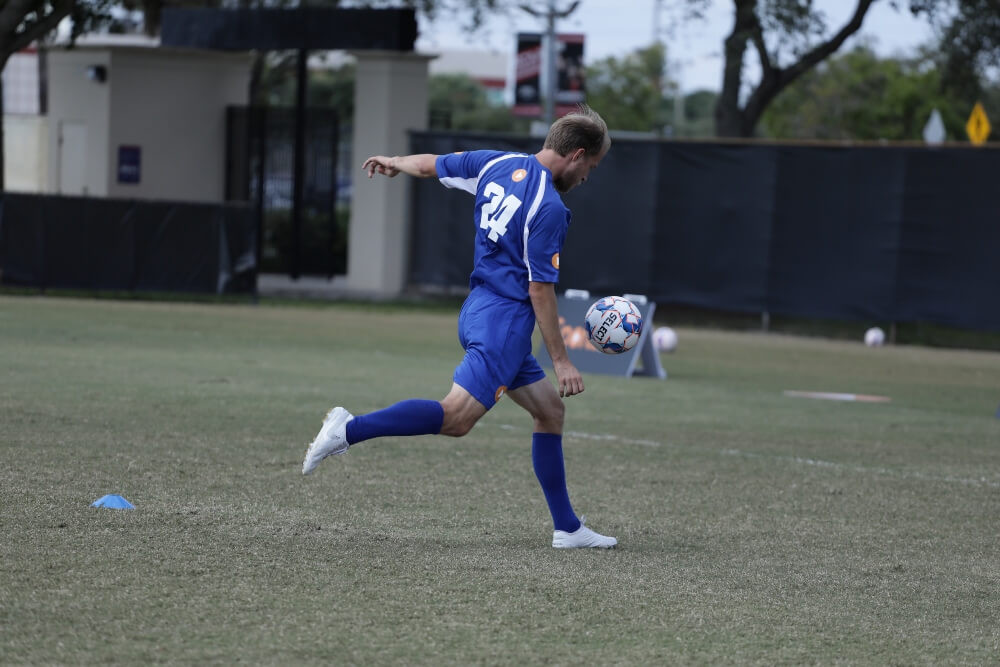Soccer
Welcome and thanks for visiting...

The Coach’s Handbook: Player Growth And Success
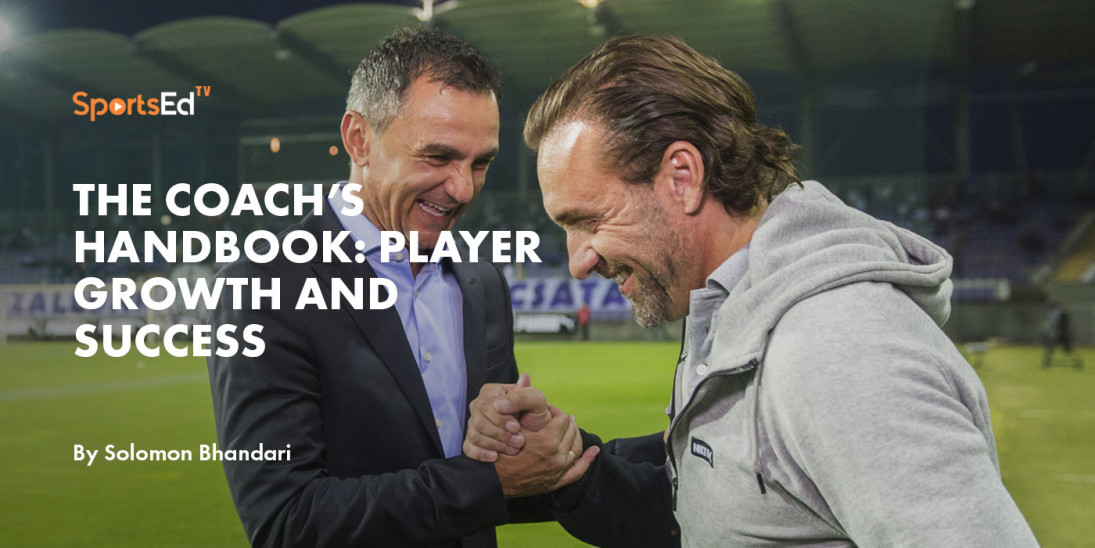
Nebojsa Vignjevic has coached for over 10 years in the first divisions of Montenegro, Serbia, and Hungary. From 2013-2020 he coached Ujpest FC, with whom he won 2 Hungarian Cups and 1 Hungarian Super Cup.
SportsEdTV: How has your coaching style adapted and grown throughout your career?â
Nebojsa: I’ve definitely learned a lot. I think that football players approaching the end of theirâ playing career often think they will automatically be a good coach. They’ve had so much experience that they think they already know everything. Of course, this is a mistake and one I made as well. I'll never forget the first team I coached because I quickly realized playing and coaching are completely different, and that I had a lot to learn in order to be an effective coach. It’s the same game but from a completely different perspective. Even the best players won’t automatically make good coaches. So after realizing that, I started to educate myself. I learned a lot about psychology which is a big part of coaching. You have to learn how to approach the players, talk with them, motivate them, and you have 20 different players with 20 different mentalities, characters, and personalities, to understand and get the most out of. So I’ve seen myself slowly learn those abilities over time.
SportsEdTV: What would you say to coaches and parents of younger players with a passion forâ the game?
Nebojsa: If you’re coaching or parenting younger players, it’s really important to pay attention toâ their attitude and character development. Not helping them develop this in their youth is a big missed opportunity. As they get older, these things can make or break their career. Sometimes the most talented guys are the most difficult to work with, and often it’s because of how they were treated as kids. Very talented kids, or even any kids, can be the center of the universe for their parents. It’s not a bad thing in itself, but if the parents give the kid unconditional and constant praise without teaching him accountability, and always tell him nothing is his fault and that he is perfect, it’s not good for him. As a coach dealing with a player like that, you somehow have to find a way to show him that football is a team game, and he needs to take responsibility for both himself and his team, and it’s difficult if you’re his coach but then he goes home to parents like this. So teaching these lessons and developing character in players at a young age is very important.
SportsEdTV: How do you go about teaching a player the right attitude?â
Nebojsa: I will try to talk to them, motivate them, and show them why their attitude isn’t working.â Also, I have to provide an example of what the right attitude looks like, and hopefully, other players on the team do as well. Still, at the end of the day, there is only so much you can do as a coach. The parents have a lot of impact when it’s a younger player, and after that, it really does become the player’s responsibility to mature. For parents, I think it’s important that young players are taught accountability. I’ve seen young players that will change clubs, change agents, change coaches, before really considering that the player himself might just need to improve and make some changes in their own game or attitude - and this kind of avoiding problems will lead to real issues in both football and life. So how much I can help the player depends on them. Some refuse to change anything. Others recognize they need to change their attitude, they need to learn more determination and work ethic, and they will ask for help with these things and seek improvement. These cases are much easier to help as a coach, and likely they will improve with time. Also a coach you have to figure out how to tailor your approach to each individual and their situation. To some players, I had to be nice and positive when I talked to them to help them the most. Others I had to push very hard to get the best out of them. Sometimes neither pushing nor being nice worked, and I needed to try other approaches. So it’s very important that as a coach you are looking to discover what type of communication and coaching works best for each player.
SportsEdTV: Have you seen players successfully overcome a poor attitude and learn theâ responsibility and discipline they needed in order to be successful?
Nebojsa: Definitely I’ve seen it, and that's always one of the biggest successes for me. If I wasâ able to change their attitude and help them become more responsible, more of a team player, that’s one of the best things I can do for them as a coach. I have had some very, very difficult guys who are playing in big clubs now. When they came to my team, they were individually very good, but they didn’t have the right attitude to work with a team. I told them as I’ve told you, that it is not enough. You will do much more with the team than you can do alone, and that applies to your career as well. You learn more from working with a good team, and you give yourself the opportunity to move up to better ones. Some of them understood that these changes were needed, and when I see how they are playing today, and where they are playing today, I am very proud of that.
SportsEdTV: What differences do you see between the top players and the ones that struggleâ in the same team? Is it mostly talent that separates them?
Nebojsa: Well I have to say that for the teams I’ve coached, all the players have generally beenâ talented. So one big part of what really separates the top ones of that group is the mentality, most of which I’ve already covered. Another necessary quality to be a top player is simply being able to take on the responsibility that you are number one. It's not easy, which a lot of players don’t realize. Every player wants to be number one without understanding what it means. It means that when your team is struggling you are the one that everybody will expect to do something, to change the game, to lift the team, and to never have a bad game. It’s a lot of responsibility. I've seen some players who are brilliant, but that doesn't mean that they are ready to be number one. â Consistency is another essential to be a top player, and that’s another oneâ that talent doesn't give you. Performing well on a consistent basis means that you are not only a talented player but a quality player. I've seen it often that a guy is very talented, and sometimes they'll play a great game, but then the next five games I don't see anything from them. The reality is that this ability on its own is not enough, and players don’t always understand that. So as a coach you have to try to get the consistency out of them. It's not about always having a good game, everyone has bad games, but there is no excuse for not putting 100% effort every game. They can still help the team this way, and that is always the most important thing.
SportsEdTV: Can you talk a bit about what effective communication should look like between aâ coach and player?
Nebojsa: When I was just starting my coaching career, I made a mistake with this that Iâ understood a little later on. When I had a player suggesting something that was wrong, I told them very straight, 'You are wrong, it's not a good idea, here is why'. What I realized was that, even though they were wrong, it wasn't an effective way to communicate. It made them afraid to be wrong, which you do not want as a coach. Also, I didn't realize how much I could learn from listening to them, even if they were wrong. Today when I speak with my players, and when they are telling me something that might be wrong, I still try to really listen and understand why they think what they do. This sends a very important message to the players because it encourages them to communicate. I try to urge them to tell me what they think about our tactics, their positions, their game, about what I did, etc. This way I can find out much more about my team, and the players individually, and how they think. Of course, at the start with a new team, the players are shy. They're afraid of being wrong, but if I encourage them enough and show them that we can talk almost as if we are equals in communication, then I can find many good ideas from them.
SportsEdTV: What about the communication between your players in the team? Do youâ encourage them to talk to each other in a certain way that can help the team succeed?
Nebojsa: Communication between the players is one of the most important aspects of a team.â Even if some players are not the best of friends off the field, when they are playing together they have to be working together and communicating effectively. But as a coach, you cannot really force them on that so it's a difficult thing to control. Sometimes a few players will simply not like each other for who knows what reason, but it has to be fixed because that can cause some real problems in a game.
SportsEdTV: How do you deal with conflict or dislike among some of your players?â
Nebojsa: The first time that I resolved an issue like this well, I thought that I had figured out howâ to deal with it. But the truth is, it is always different. It's always different players, with different personalities, and over a different issue, so there is no formula to solve all of them. This is another reason that effective communication with your players is very important so that as a coach you can understand the different arguments in a conflict, and get to the actual problem.
SportsEdTV: What would say to players who are thinking of moving into a coaching career?â
Nebojsa: Developing the attitude as I’ve explained is not only necessary for a successfulâ playing career, but it is the only way a player can be really ready to start coaching afterward. The player to coach transition is not so easy to make. The morning when I woke up after finishing my playing career, for the first time I had no training, no schedule, no set time to lunch, no plan of what to eat and drink, and it wasn’t an easy adjustment. It’s important that during a playing career you have to be building yourself as a person as well, a person who will stop playing football one day, and then you will be fine and prepared to handle this transition. If you are ready to work, if you developed patience and determination, if you learned to work well with others, then I'd say you will be fine making the jump to coaching. There's still a lot to learn, but you'll be ready to learn it. Being ready to fail, learn from it, and stand up again is also one of the most important things. A young coach will make a lot of mistakes, but as long as you are ready to learn from these mistakes you'll be fine.
SportsEdTV: We often hear about what players need to do to be effective: eat right, sleep right,â train hard, stay positive, be willing to learn, etc. What does a coach need to work on in order to be effective?
Nebojsa: He has to work on himself, his character, and his understanding of psychology. If youâ are reading and studying about football alone, you will learn a lot about the game, but you still won't learn how you will manage a team, how you will transfer the knowledge to the players, and that is a very big challenge as a coach. So as a coach you have to be learning constantly. You have to be reading, watching, and listening to people in order to learn and improve, not just about football, but also about people and life in general. In one way, coaching really is a 24-hour job because you have to keep learning all the time, and always look for new ideas to try out with the team.
SportsEdTV: What would you say directly to the younger players trying to improve and make itâ to a professional level?
Nebojsa: There is one thing that I see today in some players, and in parents as well, that theyâ underestimate the importance of their coach and his opinion. Especially for very talented players, they think that their agent is more important than their coach. The problem is that the agent will tell you what you want to hear, and he will help you to find another club, but the right coach will tell you what you need to hear. He will tell you if the problem is you, and what you need to change and improve about your game and your mentality. It’s not easy to learn from the coach and work on what you need to work on, but that is what it takes to improve. To make a career in football is very difficult, and you have to really work to learn everything you can from your coach. Even for me, my father was an ex-player and he would give me lots of helpful advice, but I would still pay more attention to what my coach was saying. Of course, this depends on having a good coach as well. You can learn the wrong things if not, and that is another challenge for players, knowing when to trust the coach. But more often it is young players not listening and not trusting their coach enough that is the problem. As a player, you have to keep your focus on improving, be very willing and eager to learn, work very hard, and step by step you will improve.

